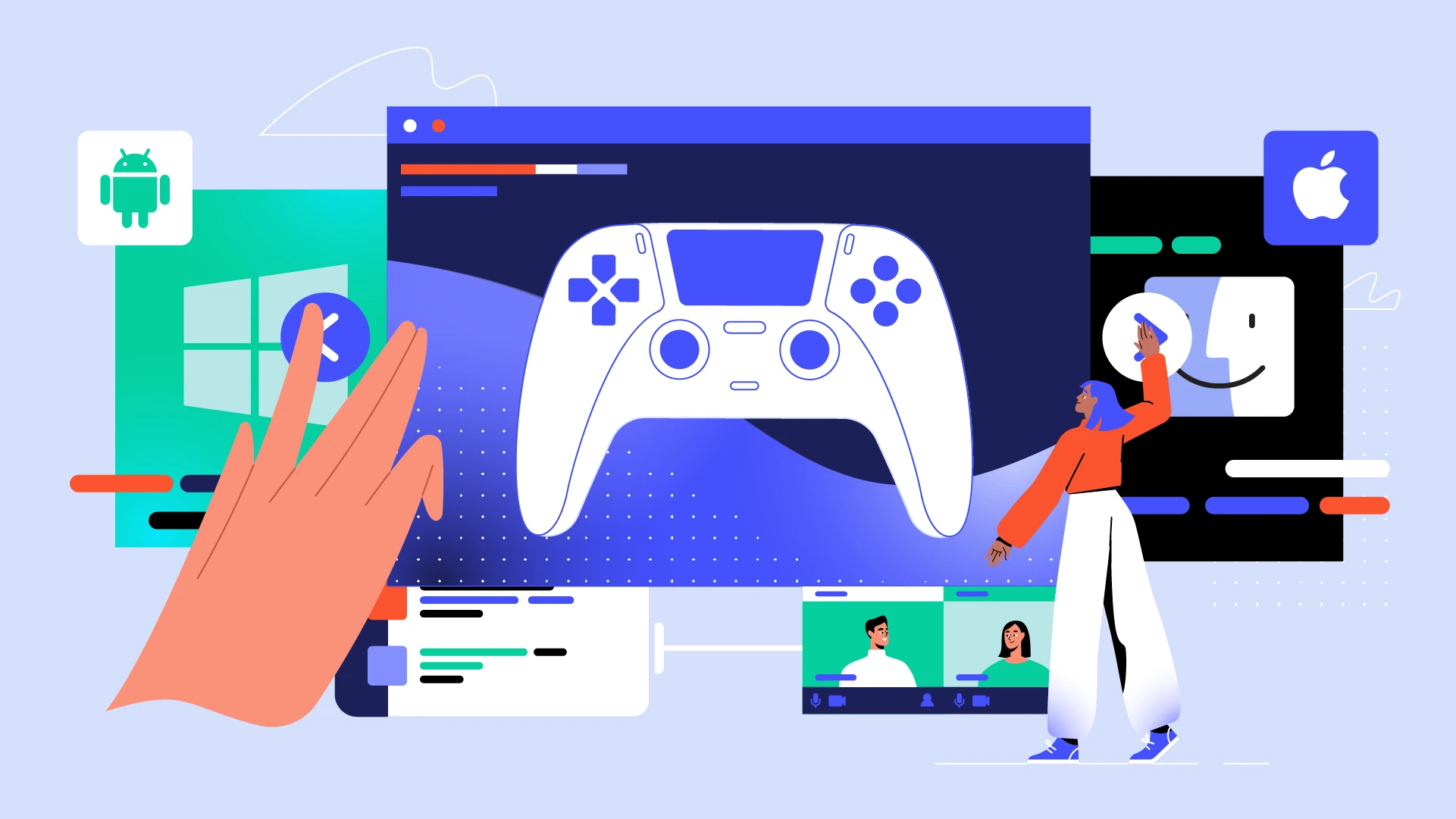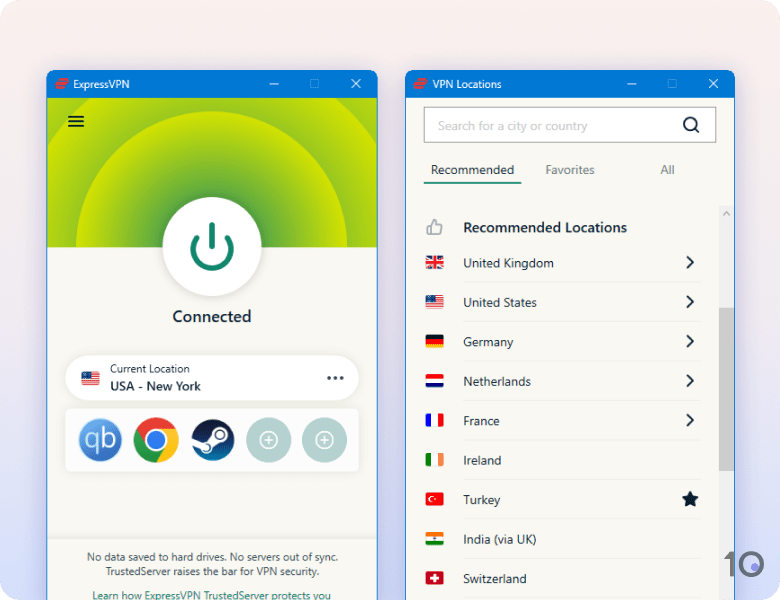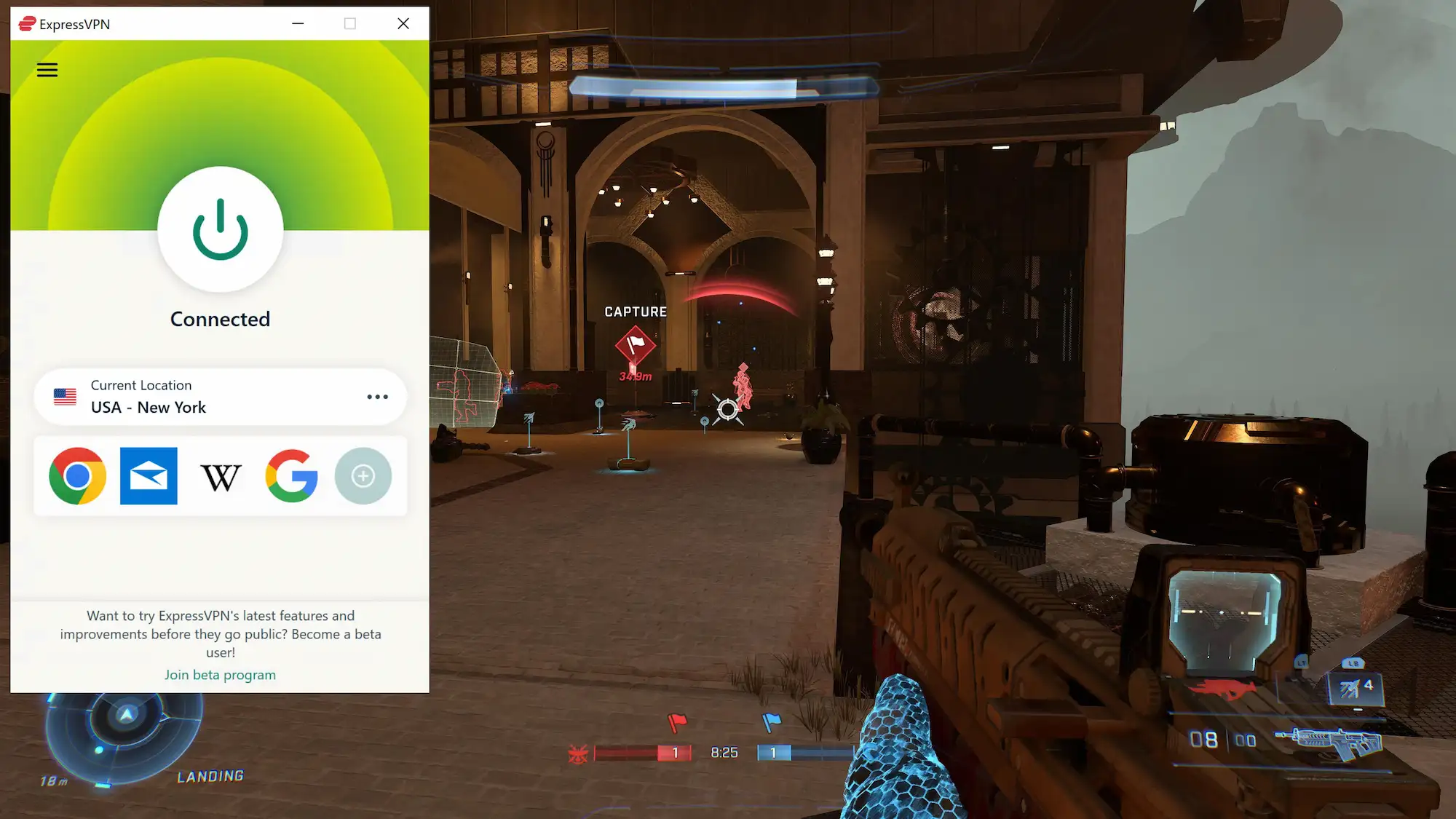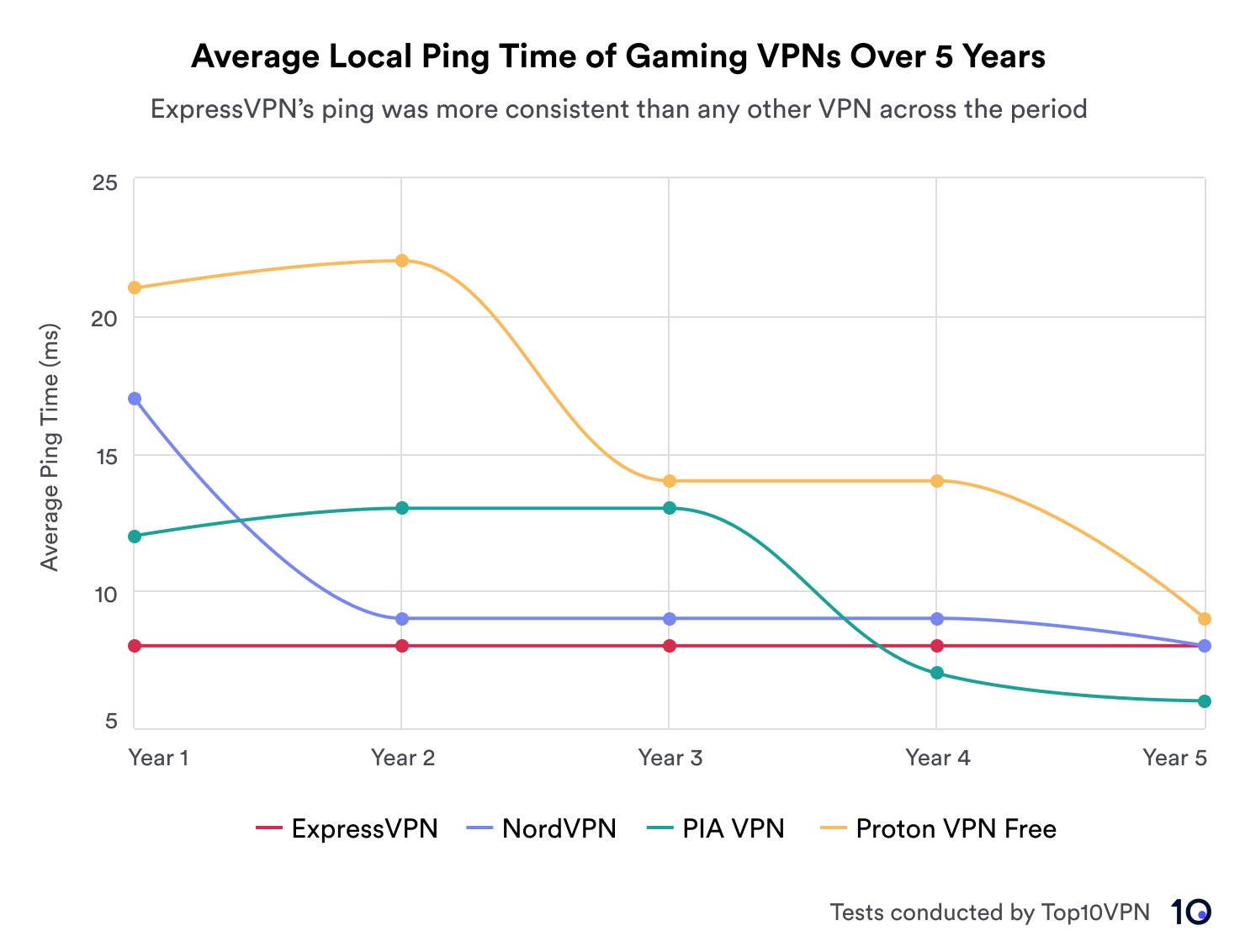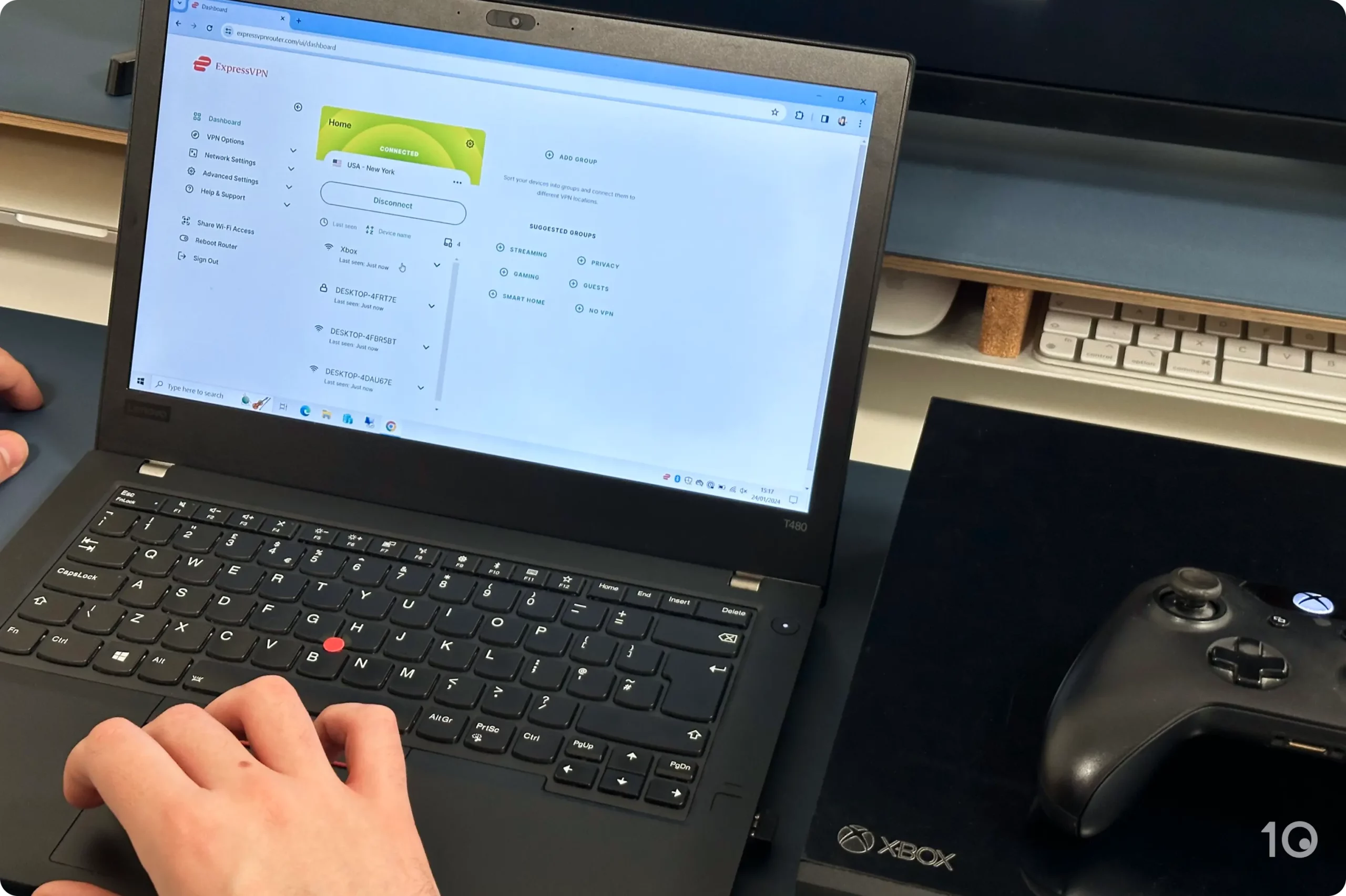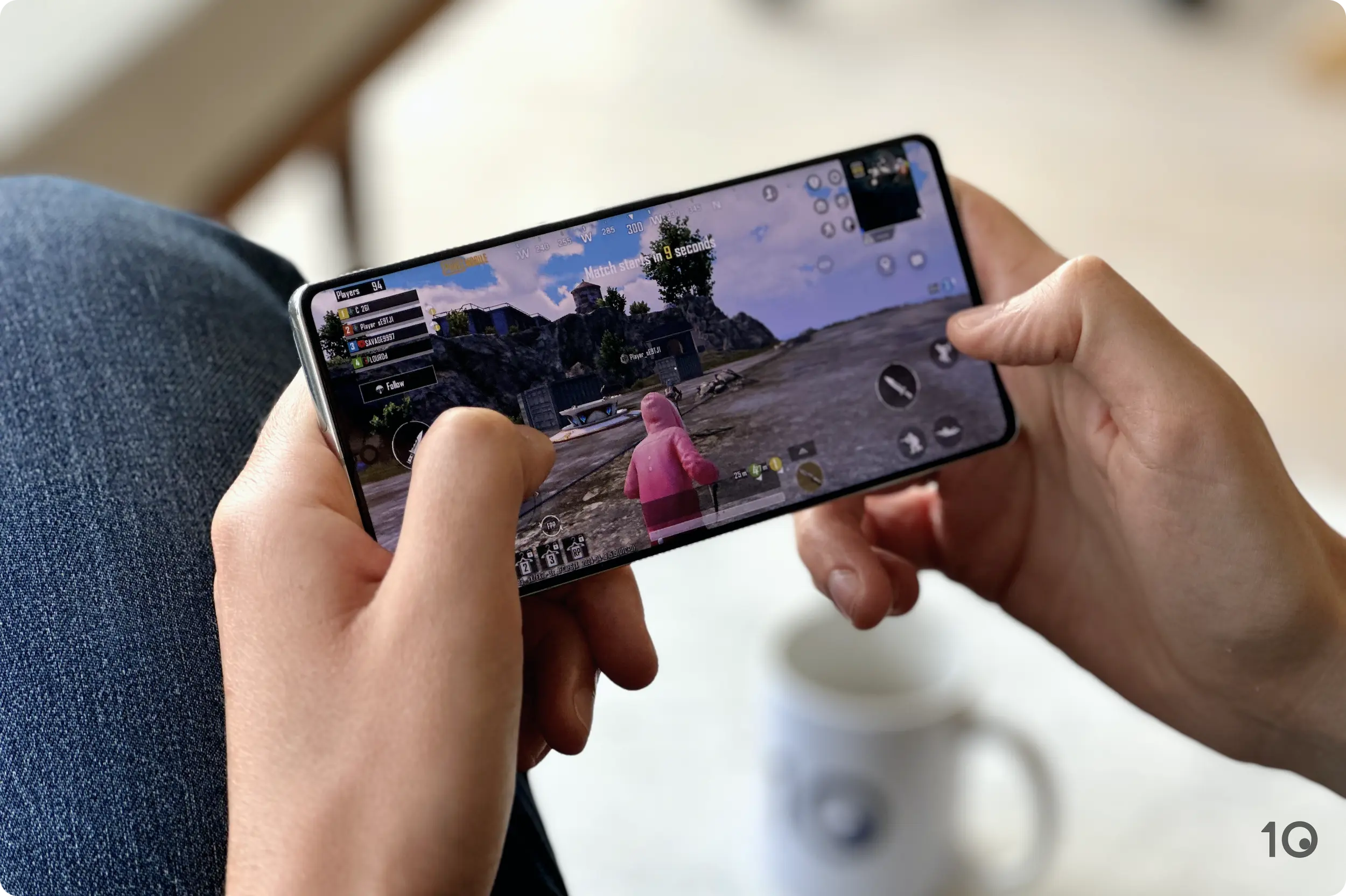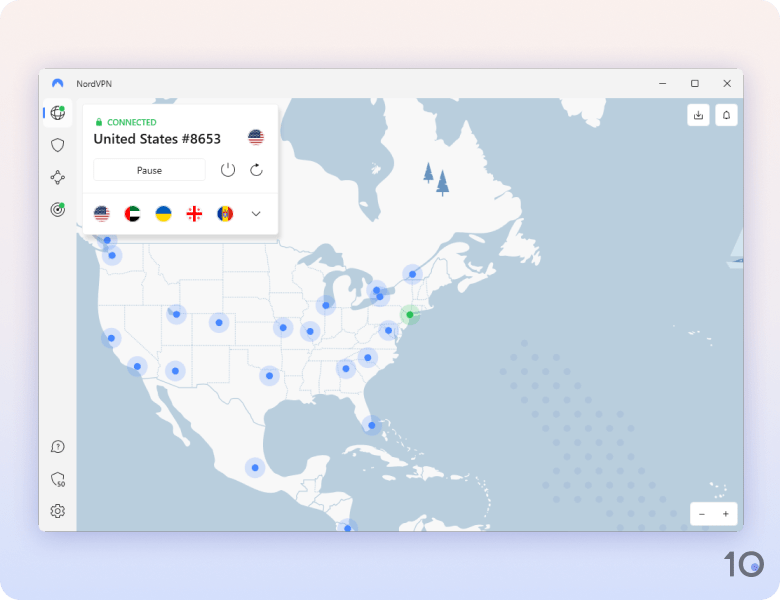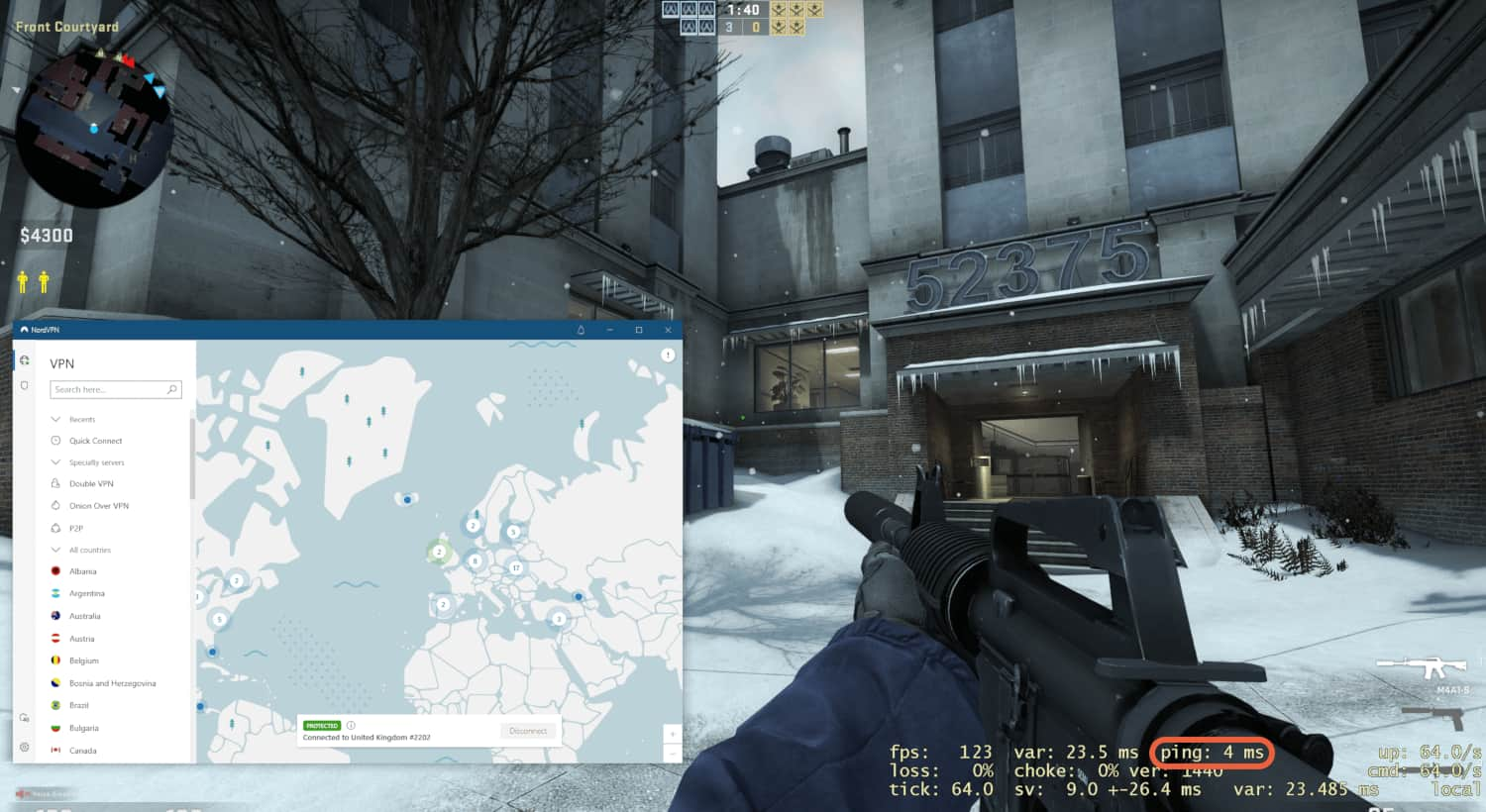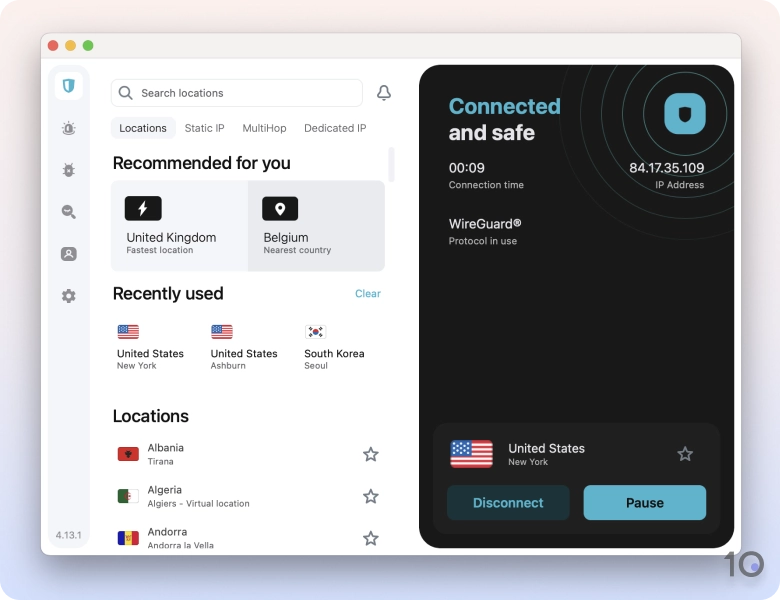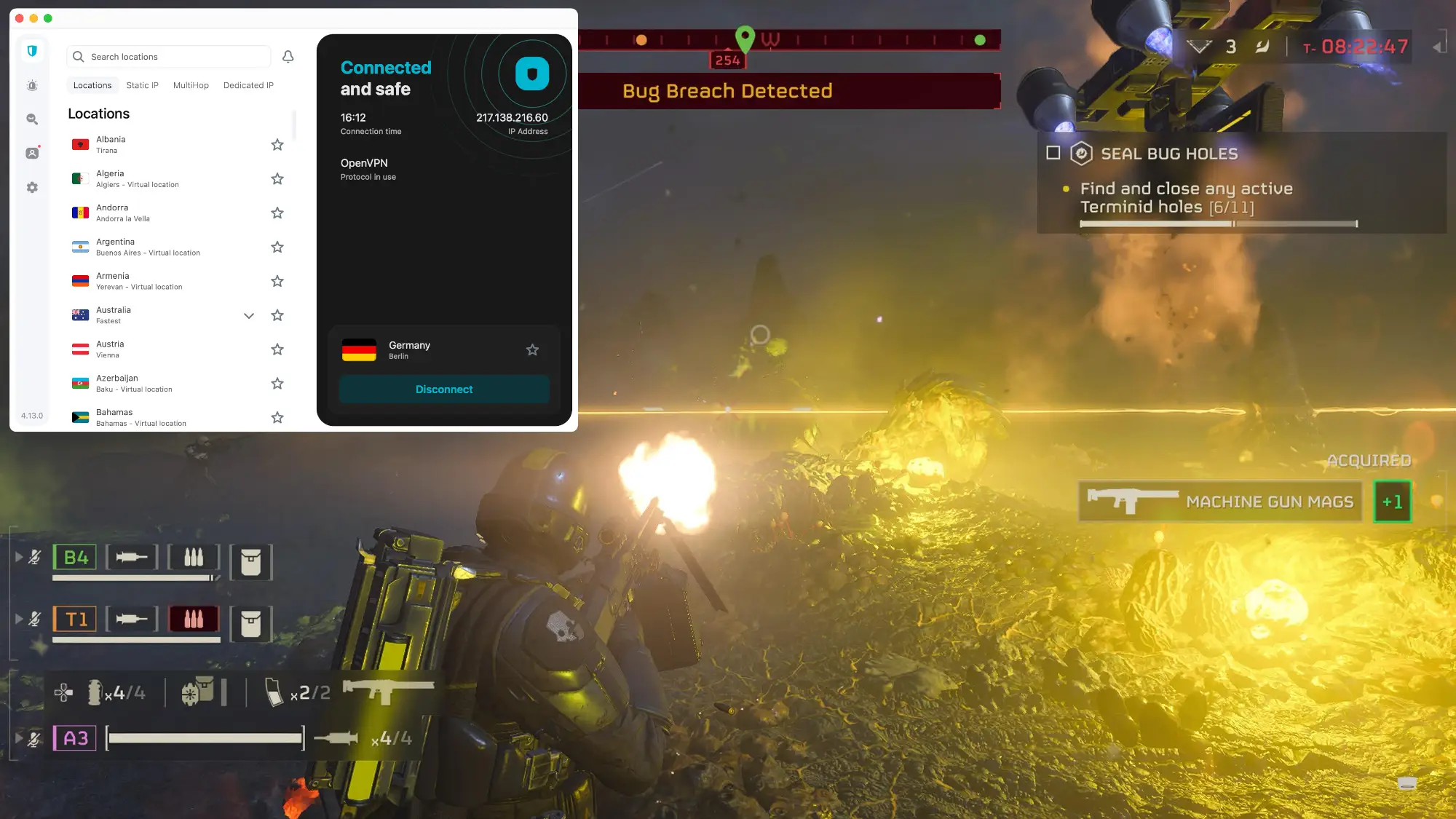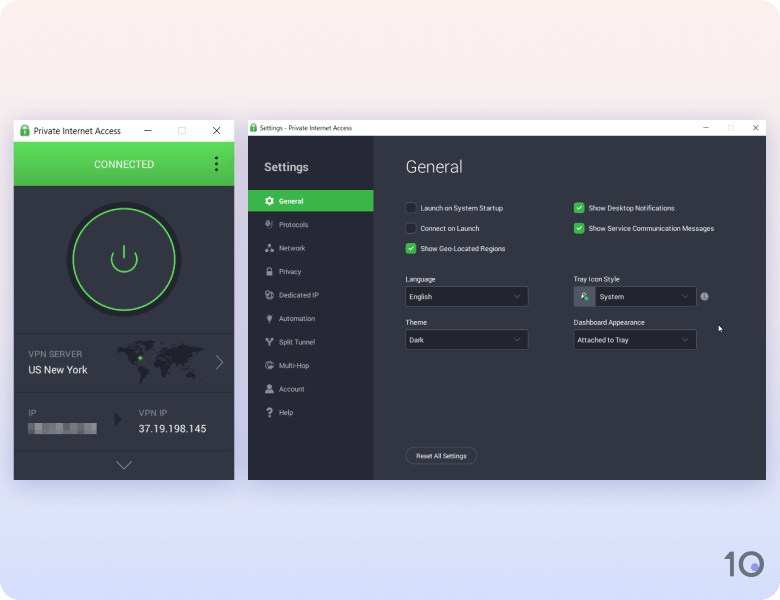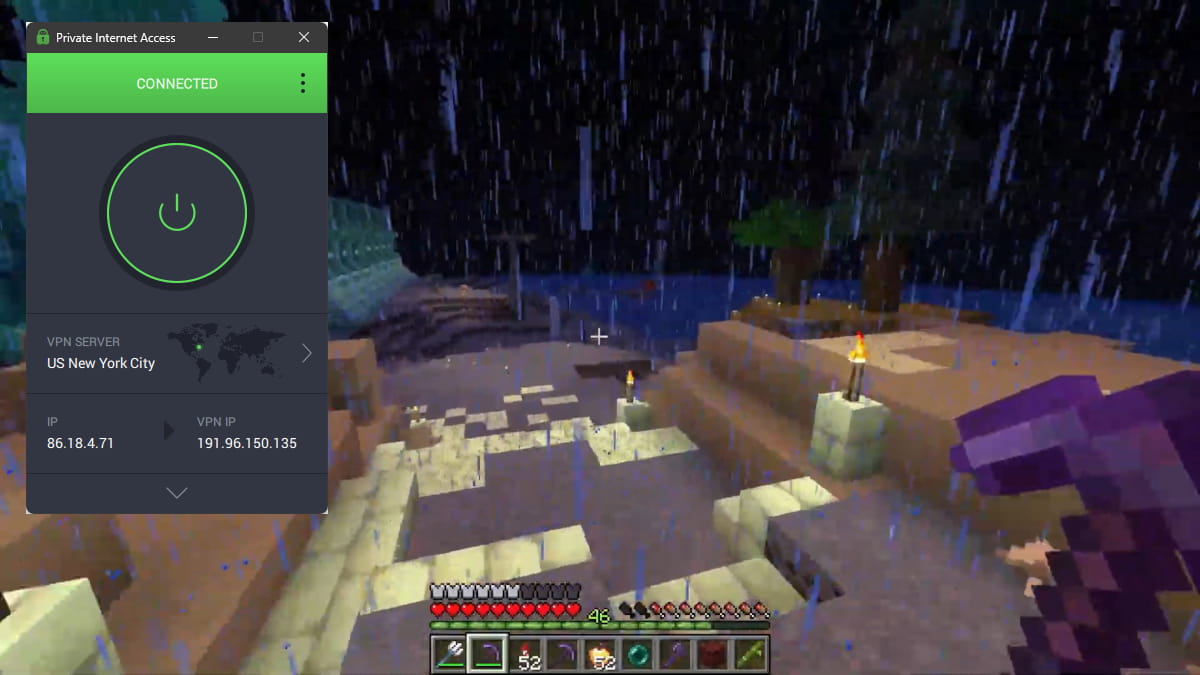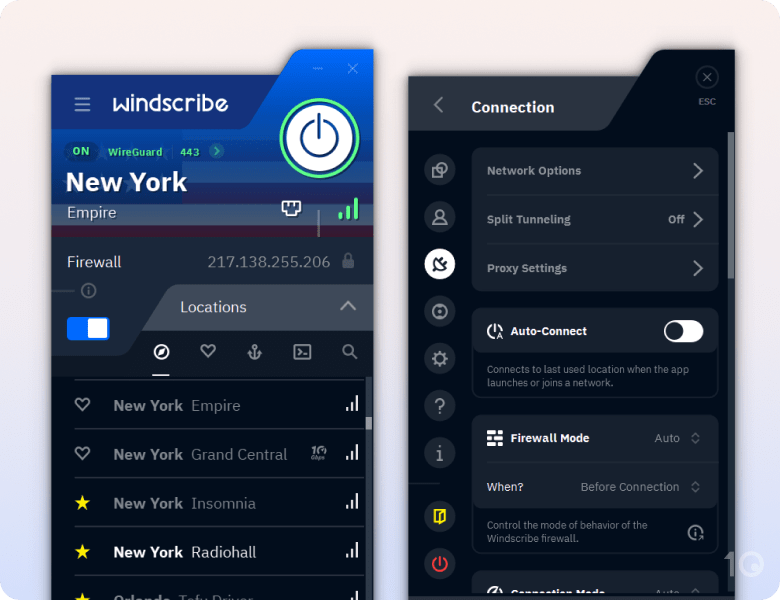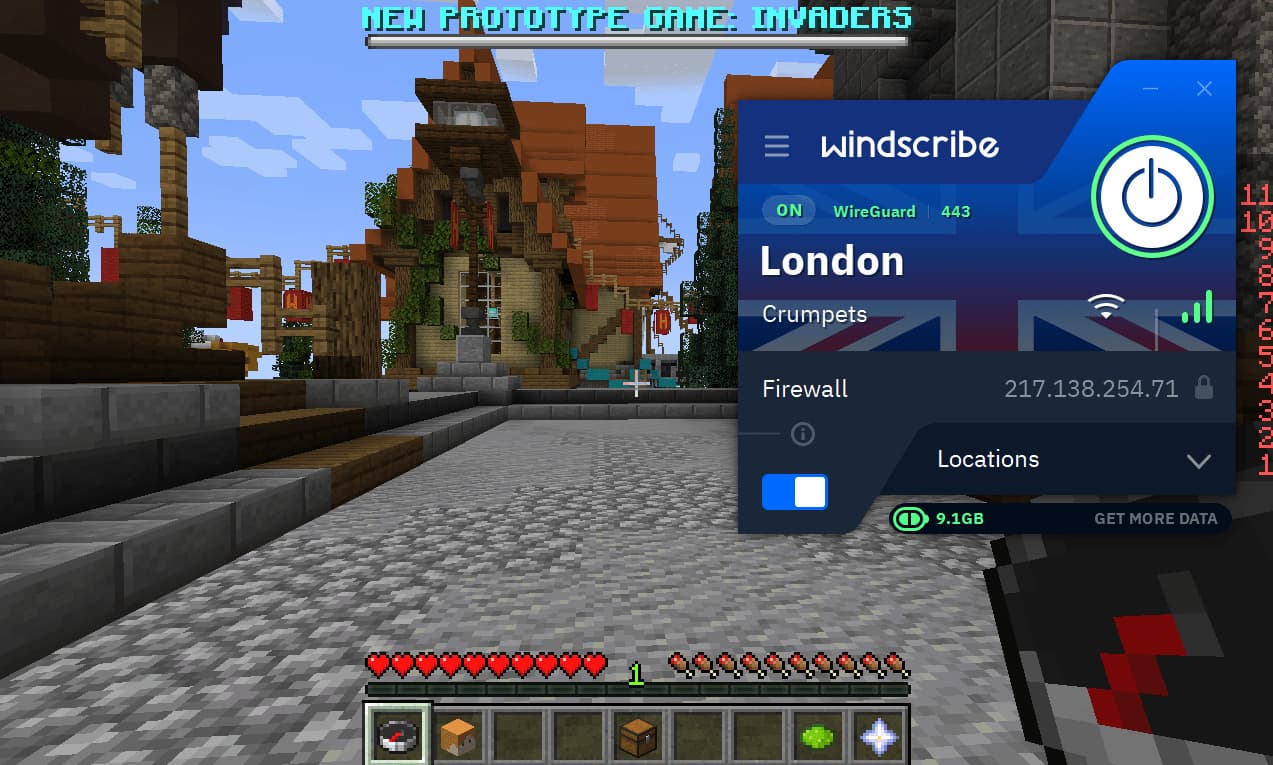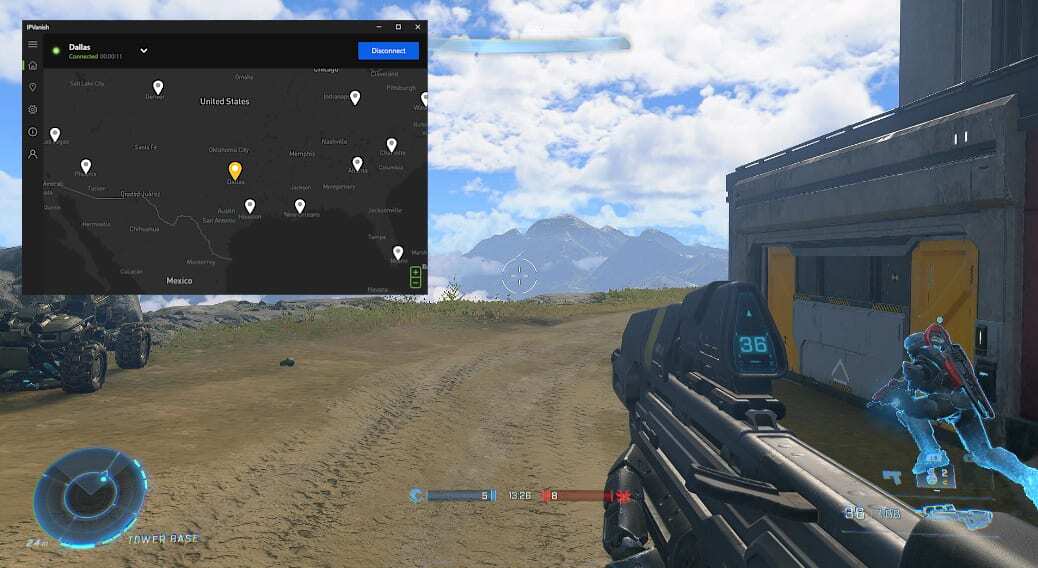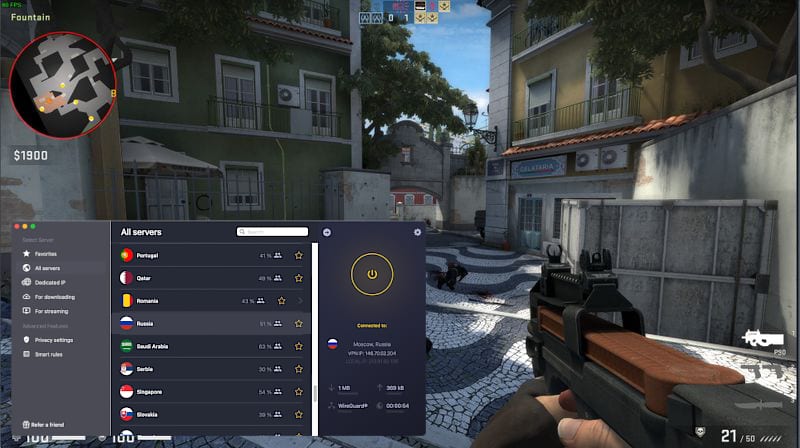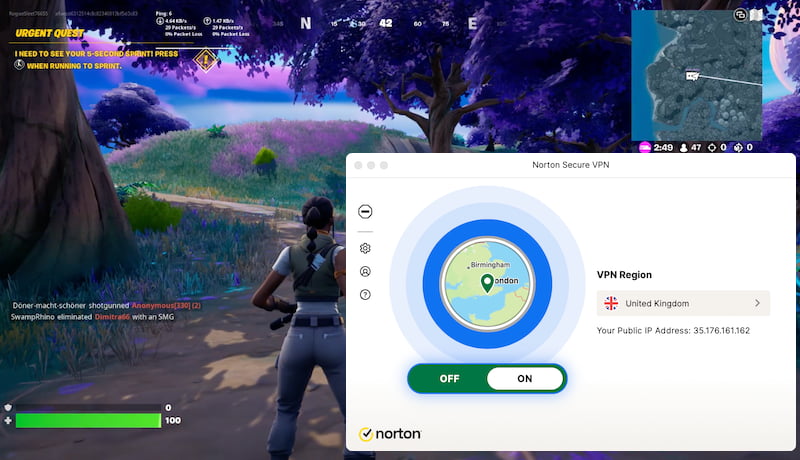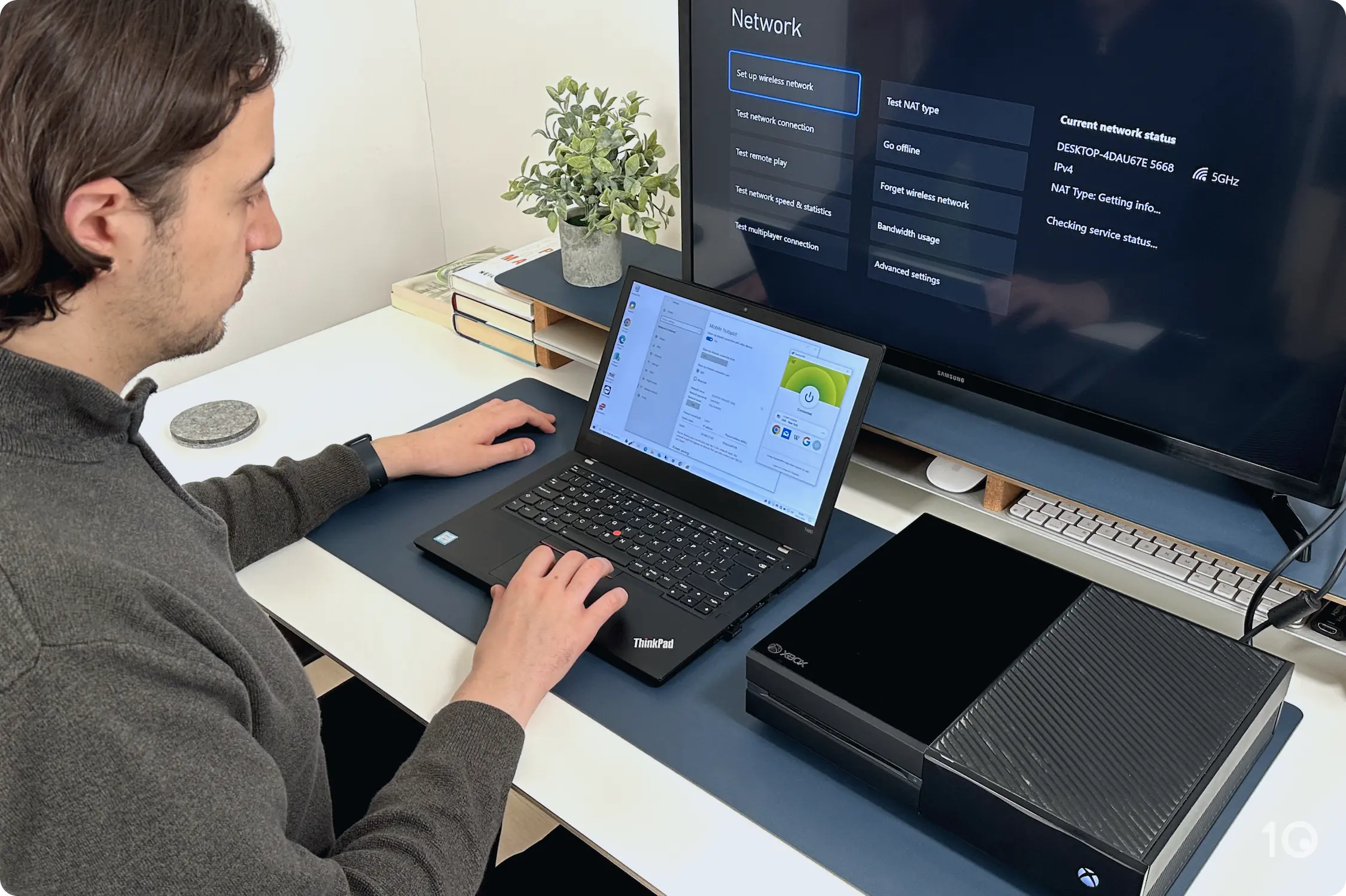VPNs with a data cap receive a reduction to their overall rating.
Here’s a more detailed list of the six key testing categories, along with how much of the overall gaming rating they make up:
1. Ping: 50%
Minimum Requirement: An average ping time of 15ms or less.
We Recommend: An average ping time of 10ms or less.
‘Ping’ refers to the time it takes in milliseconds (ms) for data to be sent from your device to a third-party server and back again.
Having a low ping time or ‘latency’ is the most important attribute for a top gaming VPN, as it will reduce the amount of lag you experience while playing.
Using a VPN almost always worsens your ping. We test every VPN using both automated and manual speed tests to make sure the services we recommend add as little latency to your connection as possible.
We also take upload and download speeds into account; the higher the average speed, the higher the rating.
2. Server Locations: 20%
Minimum Requirement: A large number of servers in several global locations.
We Recommend: Thousands of VPN servers in a wide range of global locations.
A large network of VPN servers in a diverse range of locations is the second most important attribute of a top gaming VPN.
A good server network increases the likelihood of finding a VPN server near to the gaming server you’re connecting to, which will minimize latency.
Having an evenly-distributed network of servers near you will always result in lower ping.
Worldwide servers are also important for accessing exclusive games, events, and content that are restricted to specific countries.
3. Smart DNS: 10%
Minimum Requirement: Smart DNS is not a minimum requirement.
We Recommend: VPN services that come with Smart DNS functionality.
Using a VPN service with Smart DNS is the easiest way to get the benefits of a VPN on games consoles like the Xbox, PlayStation, and Nintendo Switch.
This feature lets you use the VPN service’s DNS servers to reroute the web traffic of the console through another country.
Though it doesn’t encrypt your data, Smart DNS is useful for accessing region-restricted content on consoles without installing a VPN on your router.
Most VPN services don’t come with Smart DNS, so we reward those that come with the feature by default.
4. Privacy & Logging Policy: 10%
Minimum Requirement: The VPN only collects anonymised usage logs.
We Recommend: A clear, strictly no-logs privacy policy.
Privacy is important for any VPN, not just those for gaming. If you install a gaming VPN on Android, PC, or any other device, it’s likely you’ll use it for web browsing as well as gaming.
For this reason, we factor each VPN’s logging policy into our overall rating. Those that collect the smallest amount of user data are rewarded, while those that collect identifying or unnecessary information are penalised.
5. P2P Functionality: 5%
Minimum Requirement: Support for P2P traffic on some servers.
We Recommend: Full P2P support across all servers.
Peer-to-Peer (P2P) functionality is an under-appreciated aspect of any top VPN for gaming.
Some games and consoles – the Nintendo Switch for example – rely largely on P2P connections and won’t work online if you have a strict NAT firewall.
This is mainly true for games without central servers, where a P2P connection is required to connect you to other players.
A VPN routes your traffic past the NAT firewall, and allows a P2P connection regardless of your router or network’s settings.
The top-rated gaming VPNs allow P2P traffic on all servers, which means they’ll work well with all online game types.
We reward the services that make it easy to find low-latency P2P servers in any location.
6. Additional Gaming Features: 5%
Minimum Requirement: AES-256 encryption and OpenVPN.
We Recommend: All of the above plus port forwarding and router app support.
Finally, our gaming rating accounts for overall quality by factoring in basic standards of security, customer support, and additional features.
We use packet-inspection technology to test every VPN for effective AES encryption, OpenVPN support, and IP or DNS leaks.
For gaming specifically, we reward VPNs that offer additional configuration options, easy installation, and a native application for home routers.
Port forwarding is a rare but related feature we also test for; this gives you the ability to manually optimize your connection for minimal lag and short lobby waits.
We also test customer support by contacting the VPN service through email and live chat, if available. If the support agent responds promptly and helpfully, we’ll rate the VPN higher.
